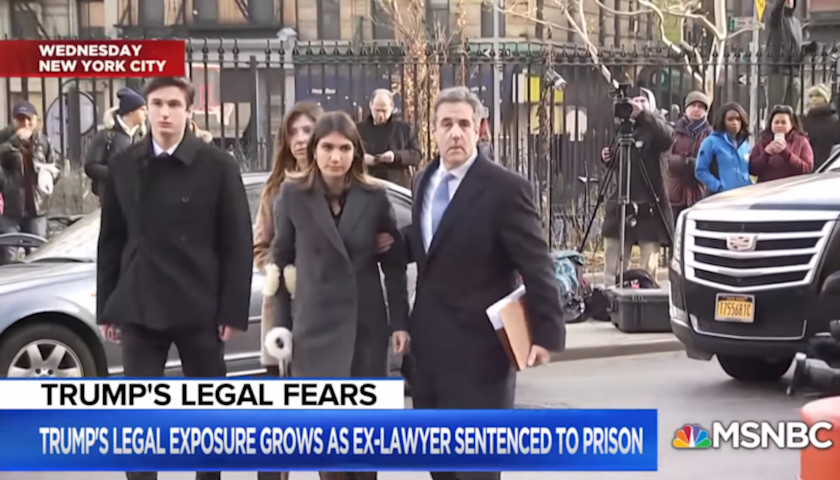by Robert Romano
President Donald Trump’s former personal attorney Michael Cohen never sought reimbursement from the 2016 Trump campaign for non-disclosure agreement payments of alleged mistresses of Trump’s. Instead, the reimbursements were sought and delivered from Trump’s business, the Trump Organization.
Cohen didn’t think these were campaign expenditures back in 2016 to settle a private matter. Yet now on a post hoc basis, the U.S. Attorney for the Southern District of New York and Cohen have determined that it was.
These were non-disclosure agreements that Trump would have entered into even if he had not been a candidate for public office just to protect his businesses, his reputation and his family. Trump has individual rights under the Constitution to contract with an attorney to enter into just these sorts of legal settlements with potential litigants, something Congress cannot preempt.
But the U.S. Attorney coercing Cohen’s guilty plea to campaign finance violations that were not campaign violations does not — and cannot — make law.
That is Congress’ job, and the statute is very specific. It requires that to be an expenditure under the law, 52 U.S. Code § 30101(9)(A)(i), it must be “for the purpose of influencing any election for Federal office.”
This was not a television, radio, newspaper, Internet or any other kind of ad for the campaign. It was not a service that was being provided to the campaign. It did not expressly advocate for or against the election of Trump in the campaign. It was not a paid endorsement or anything like that.
They advocate neither for nor against a candidate for office. They didn’t influence the election directly, which is the intent of the statute.
Put simply, it was not a campaign expenditure, Cohen’s guilty plea and 3-year sentence in federal prison notwithstanding. Anything that is not about directly advocating for the election or defeat of a candidate for public office cannot be an expenditure, or else all activities affecting a candidate’s reputation or appearance might be covered, too.
For example, if a candidate buys a nice suit with his own money the day before an important debate so that he looks good on television, that is still not a campaign expenditure that would need to be reported to the Federal Election Commission. The suit does not have the magic words written on it, “Vote for me!” The suit can be used again, for example, to be worn at church or work. So, it’s not really a campaign expenditure, even if the intent was to make the candidate look good on television for the debate. It does not actually directly influence the election, and so is not implicated by the law.
And even if an overzealous federal prosecutor brought a case against that candidate or his lawyer for buying the suit as an unreported campaign expenditure, and the defendant was dumb enough to plead guilty to the crime that wasn’t a crime, it would still not make it law.
Besides, if candidates took out donations for a campaign and ended up spending all the money on nice suits or going to expensive restaurants, that would probably be a misallocation of campaign resources. If they were used to settle private transactions or business, as guest radio host Larry O’Connor noted on the Mark Levin Show, it would be a violation of the very statute Cohen has now pleaded guilty to.
It can’t be that if Trump had used campaign money for the non-disclosure agreements it would have violated the law, and if he used his own money it violated the law, when by themselves the non-disclosure agreements are not illegal. Candidates do not lose their constitutional rights when they run for office.
It is not the U.S. Attorney in the Southern District of New York’s job to make law.
Again, that is Congress’ job, and it has already done so.
Now, even if these types of non-disclosure agreements were ever somehow deemed a campaign expenditure by Congress — it would take an act of Congress to do it — unreported campaign expenditures would still be better enforced by the Federal Election Commission, and have been for years, and are often settled with fines, not malicious prosecutions.
And certainly not impeachments. That’s not a high crime.
Of course, nobody cares about what precedent might be set by these cases. Or what the law says. It’s all about getting Trump, even if it means making up a law and prosecuting him or his associates for violating the fake law. What a joke.
– – –
Robert Romano is the Vice President of Public Policy at Americans for Limited Government.
Screencap “Michael Cohen” by MSNBC.




